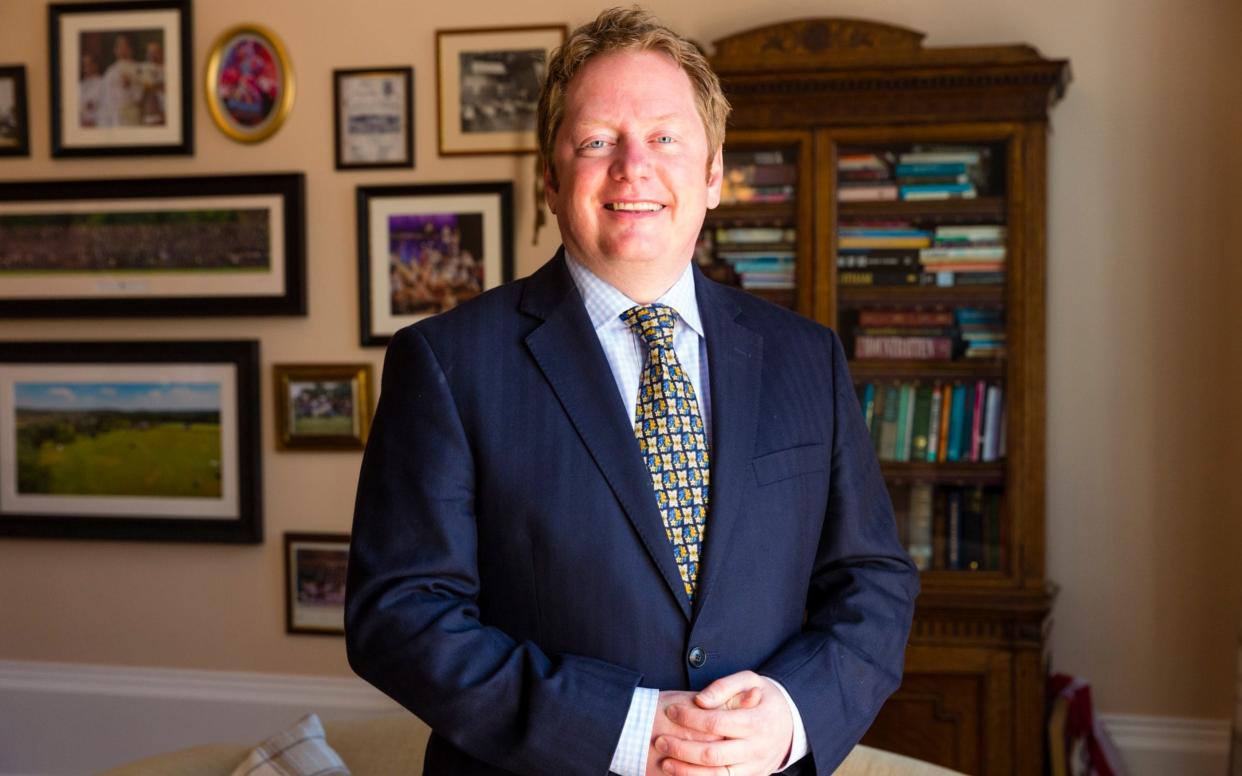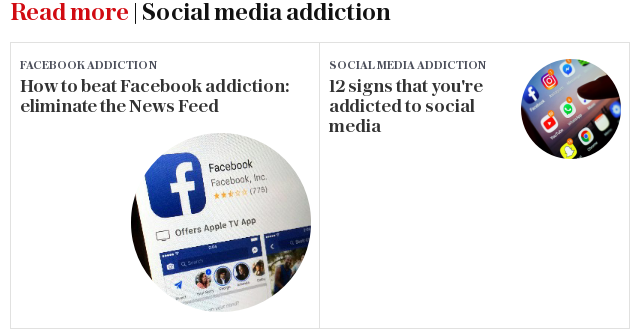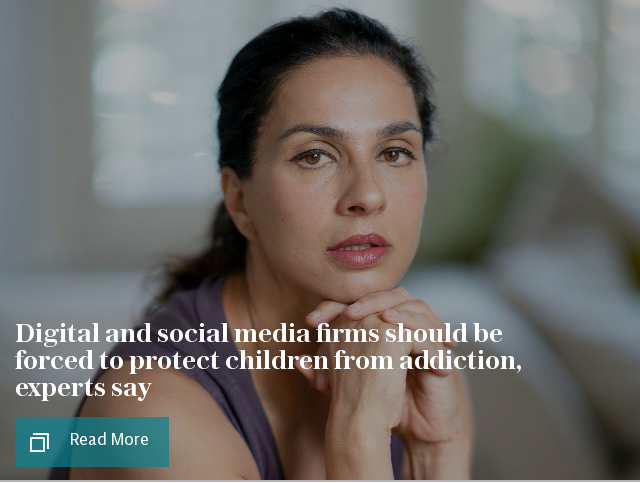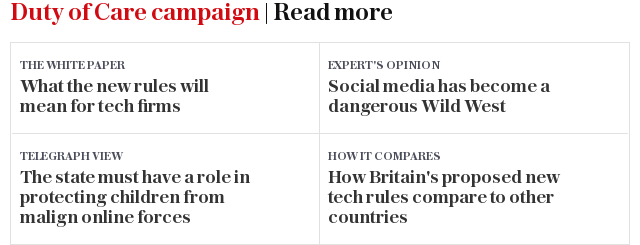Impact of social media on children’s mental health a 'real tragedy for our time', says new private schools chief


Performing is in Shaun Fenton’s blood. He may be the new leader of Britain’s top private schools, but he is also the son of 1970s rock star Alvin Stardust, his mother was a dancer and his brother is an award-winning DJ and record producer.
“The advantage my dad always had was that people had chosen to turn up by buying a ticket. The disadvantage for teachers is the students haven’t any choice. That’s why teaching is a performance art,” he explained, sitting in his study in Reigate grammar school where he is head teacher.
“You have a different audience seven times a day that you have to enthral, inspire, engage and help to learn as well as enjoy your lesson.”
It is a vocation that has taken him from PPE at Oxford University (the first in his family to stay on at school beyond 15) to a career in a state comprehensive (the Ridings was then seen as the toughest in Britain), state grammar, state academy and now chairman of the Headmasters’ and Headmistress’ Conference (HMC), overseeing schools from Eton and Harrow to Manchester and Reigate.
No previous chairman has had such a breadth of school experience to draw on to articulate a vision for HMC. In an interview to open his year in charge, he outlined that vision: it will focus on tackling the rise in child mental ill health, helping children cope with social media and ensuring HMC schools play a key part in helping disadvantaged pupils.

Social media, he believes, is contributing to a mental health crisis among children that is “a real tragedy for our time”. He said emerging evidence pointed to the constant pressure to be online and incessant stream of negative information damaging children’s mental health.
“The tragedies in the world, the problems in conflict areas, the disease, issues causing mass migration are in the consciousness of young people more than ever before,” he said.
“They are now on their phone feed constantly, every 10 seconds. Those complexities are very different to what they have been for young people before.
“The technology also chases children into what were private spaces in their family homes and can create new opportunities for anxiety, bullying and destruction.”

Endorsing The Daily Telegraph’s campaign for a statutory duty of care on the industry, he said it was time for social media firms to do more to provide “a safe and managed” environment online for children which could include “healthy” time limits.
He also backed new laws to rein in the firms, saying our relationship with social media needed to be “recalibrated.” “The platform providers have a part to play and I am sure there is a role for regulation,” he said.
He was, however, concerned mental ill health, unlike physical illness, was still shrouded in stigma which meant children found it difficult to tell parents, teachers or carers they were suffering. “We need to normalise it to encourage people to come forward and get support,” he said.
Education – and in particular “character education” – was critical in helping children develop mental resilience to handle crises, he said. For social media, they also needed a “tool kit” of tips such as no phones in bedrooms to ensure a “healthy” approach.
“Part of the ethos of an independent school is helping children to embrace first match nerves, rise to the challenge of speaking in front of 100 people, or having stickability on a hike in November for a Duke of Edinburgh award,” said Mr Fenton.

“In those moments of personal challenge, children learn resilience and strength to prepare them for the inevitable challenges that will come in life.”
It is a lesson he learned when arriving at Haberdashers’ Aske’s in Hertfordshire with his mother, by then separated from his father. Their “distinctly unimpressive” Honda Accord with a piece of cardboard over the broken sun roof stood out against the other parents’ Mercedes and Jaguars.
“What it enabled me to do was to understand how fortunate I was to go to an independent school that had assumptions about success, aspiration and going on to do something in your life,” he said.
“Working some years on in a challenging environment in the state sector, it awoke in me a vocation for all children to have the transformational educational experience that I had.”
At Reigate, he aspires to “needs blind” admissions so any child who passes its entrance tests and could benefit would get a place irrespective of parental earnings.

His team goes out and targets local areas of social deprivation to promote the £2m available each year in means-tested bursaries and fee remissions.
Some 170 of the near-1000 pupils are on such bursaries while Reigate boasts double the proportion of poorer pupils eligible for the government’s pupil premium compared with state grammars.
He is also opening five schools in China to teaching paying Chinese pupils not just to forge international links but also significantly to help boost funds for bursaries. It is a full circle from his childhood when he himself won a bursary to Haberdashers’ and broke the family tradition.
Both his parents left school at 15. His mother, Iris Caldwell, who went out with both Paul McCartney and George Harrison at school in Liverpool, decided to be a dancer. His father, born Bernard William Jewry, pursued his music career as Shane Fenton in the 1960s before becoming Alvin Stardust.

Mr Fenton, who inherited the 60s stage name, recalled his father’s glam rock image was partly an accident. After dyeing his hair black for his first Top of the Pops, he had to use stick-on side burns to hide the dye that had dribbled down his cheeks.
“His hands were dyed black and the only place he had time to get to was a ladies’ outfitters opposite the BBC studios where he bought these tight black ladies’ gloves to hide the dye,” said Mr Fenton. “He said he was so nervous from all that he couldn’t smile on the set. So that’s how you got this moody singer in tight black leather.”
It was a “stage persona” but he was also “a great dad”, said Mr Fenton, from teaching him how to do a spin pass to helping instil qualities that have seen him through to his new role. “He was old fashioned. He believed in working hard, having good manners and being respectful. They were – and still are – important things.”

 Yahoo News
Yahoo News 
